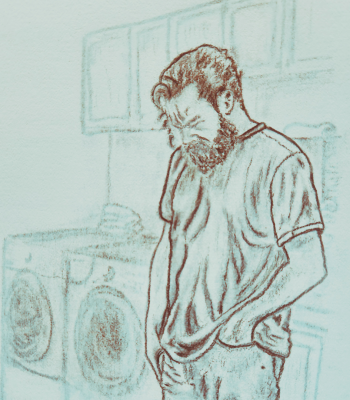The Double Empathy Problem
“The most important thing in communication is to hear what isn’t being said.” – Peter Drucker
The double empathy problem posits that difficulties in social interaction are not solely the responsibility of the autistic person, but also result from a lack of understanding and empathy from people who are not autistic.
Explaining the double empathy problem poses its own challenges, so I’m quite literally illustrating the concept with a question: Who will do the laundry?
Who Will Do the Laundry?
Autistic grief is authentic, deeply felt, almost tangible. And it can manifest in a way that can be baffling to non-autistics. We have seen this when someone on the spectrum receives news of the loss of a parent or caretaker. “Who will do the laundry?” is a type of question a person on the spectrum may ask. It can seem pragmatic, almost unfeeling, but it is a distilled expression of grief concentrated into an overwhelming question.
Difficult to explain, so I’ll illustrate.
Years ago, a close friend who is not on the autism spectrum talked about the loss of his mother to breast cancer when he was 11 years old. Her death was an abrupt devastation. When he spoke about the experience, he formed descriptions of being snuck into her hospital room for brief visits, and even with her deteriorating state, he thought that she would eventually come home.
She never did. But the feeling of her possibly returning lingered. “I remember the moment I truly understood that she wasn’t coming back. I went to the basement to find my father standing next to piles of laundry. His head was bent. He was sobbing. And I knew that I would never see her again.”
Who will do the laundry?

This is how the question Who will do the laundry? feels.
An Overwhelming Question
Who will do the laundry? is an expression of grief concentrated into a plea that really captures the questions, “What is life without them? How do I go on?”. When an autistic person demonstrates grief in this concrete form, a non-autistic person may perceive a lack of empathy. In turn, the autistic mourner may feel that others have no empathy for their despair, depending on their reaction to the overwhelming question.
My friend’s description of the laundry room scene illustrates his father deeply grieving with echoes of Who will do the laundry? quietly implied. In both cases, it’s not about the laundry. It is about the loss.
Tammi Morton, Director of Operations

